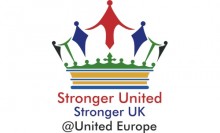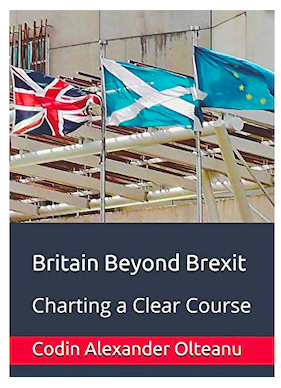Perhaps not coincidentally, the Labour Party's position mirrors that of the Tory party. Labour is also divided into three wings: Europhile, Euroreformist, and Eurosceptical. The still-dominant ‘Europhile’ group accepts the approach to the EU institutionalised by the New Labour Prime Ministers Tony Blair and Gordon Brown and is comfortable with the European Union, its institutions, and Britain’s current role within it. This group’s members know how to work within the EU, realize the advantages of EU membership and supported it unconditionally - if not enthusiastically. This wing is represented of course by former Prime Ministers Tony Blair and Gordon Brown as well as by their younger supporters still active in the party.
The ‘Euroreformist’ group is a mix of younger voters who understand the lack of democracy permeating the EU institutions and the need to move it away from the austerity and business-focused agendas that have dominated its policy agenda in recent years - but also by a much older type of Labor voter, going all the way back to Michael Foot and Denis Healey. Many of these Labour members were doubtful initially about joining the EEC, although they eventually come to terms with Britain's membership in today's EU. Their pro-union, fair-trade stands also makes them critical of the way Brussels is run today and therefore at best reluctant supporters of the ‘stay in option. New Labour leader Jeremy Corbyn is of course this group’s leading member, as are some of the younger activists who joined the party after Corby’s accession to leadership. Mr. Corbyn best articulated his group’s position in an article published in September 2015 in the Financial Times, where he stated that:
“We will be in Europe to negotiate better protections for people and businesses, not to negotiate them away… Our shadow cabinet is clear that the answer to any damaging changes that [prime minister David] Cameron brings back from his renegotiation is not to leave the EU but to pledge to reverse those changes with a Labour government elected in 2020.”
By far the smallest wing of the party is led by MPs such as Kate Hoey, who has openly declared herself in favor of the ‘leave’ option and is militating to attract as many Labour MPs and supporters as possible to her cause. Ms. Hoey has joined the cross party Grassroots Out coalition militating for Britain's departure from the European Union.
The result of this three-way split is a less than enthusiastic institutional approach by the Labour Party for the ‘stay in’ the EU option that reverberates all the way across the Labor “stay in Europe” movement led by Alan Johnson. Today’s Labour party will certainly not be able to provide the dynamism, enthusiasm, and motivation required to lead proactively Britain’s ‘stay in Europe’ campaign. Such a mobilization is essential if the pro-EU side is to regain the upper hand over the ideologically committed ‘leave the EU’ campaign. Labour’s inability to take the lead I doing so seriously endangers the ability of the ‘stay in’ side to win the June 23. 2016 Brexit referendum.

